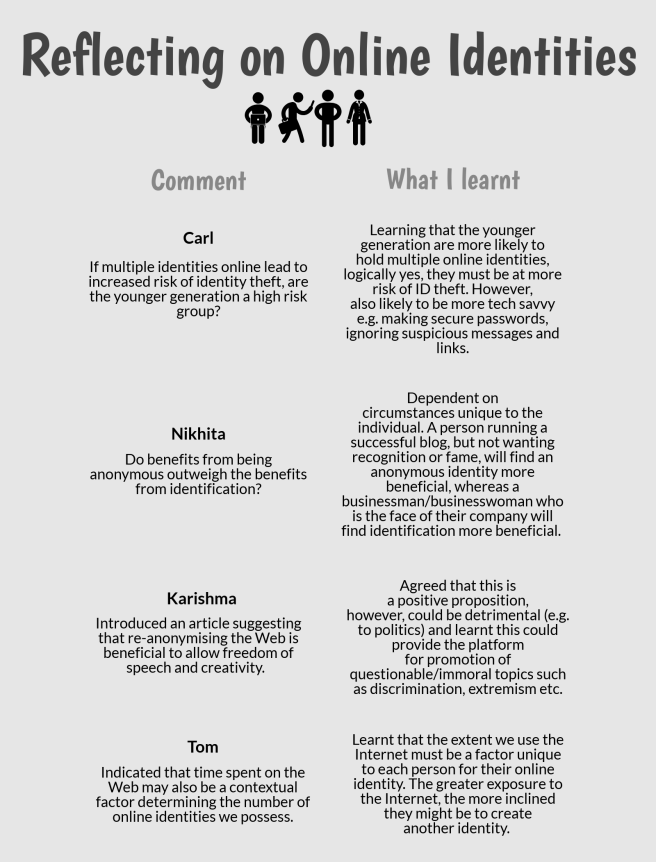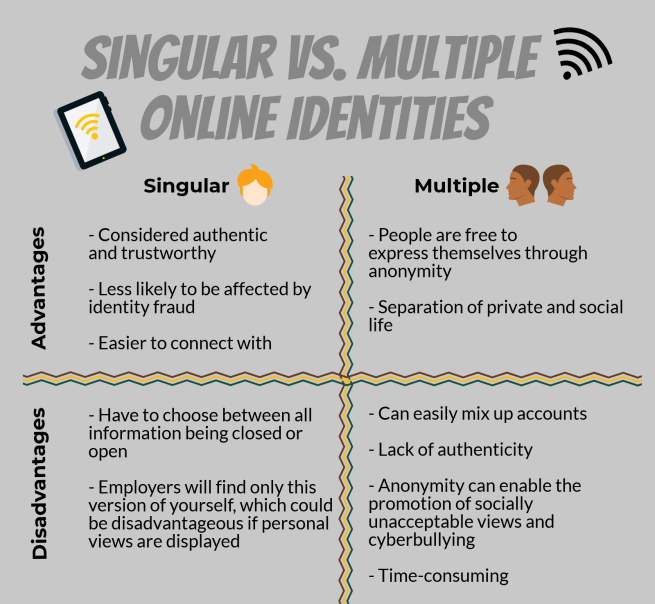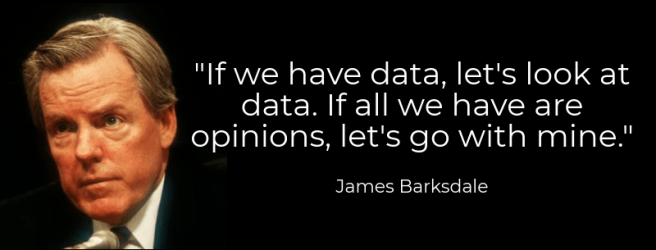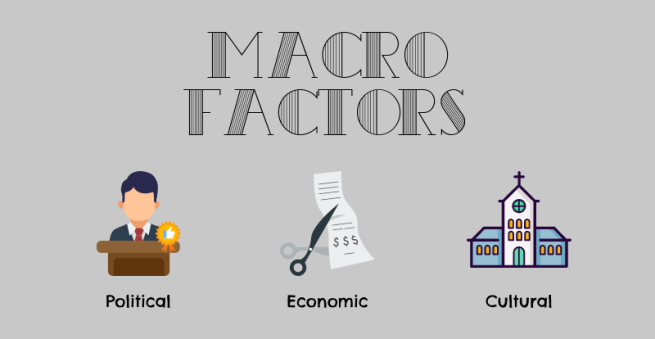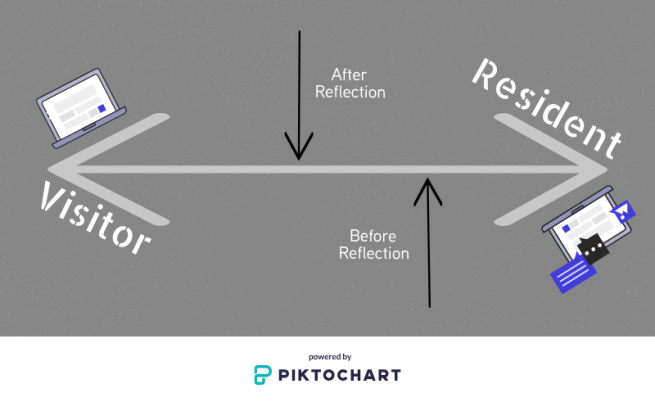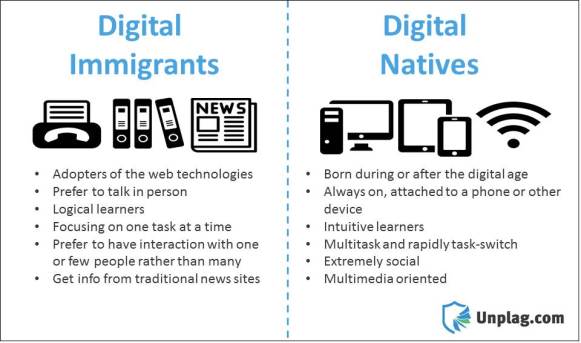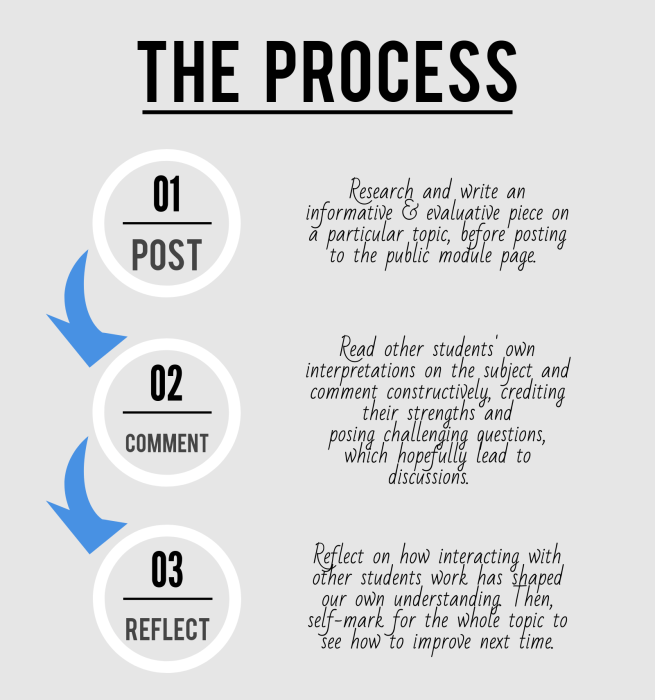
Final Reflections
A learning curve – the only way to describe the journey of UOSM2008. Using the Smyth (1989) template for self-reflection, the following summarises my progress and thoughts throughout the module.
1. Describing – The UOSM2008 Experience
What did I do?
This module entailed starting a blog, which served as a platform for the fortnightly process of posting, commenting and reflecting upon a specific topic, relating to the online World.
Continue reading →

